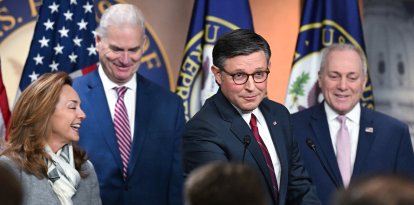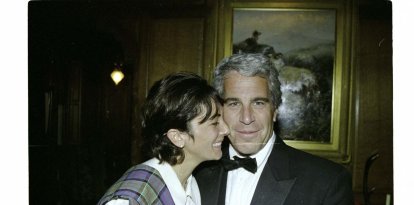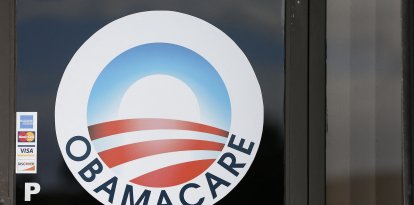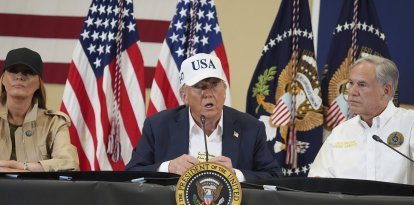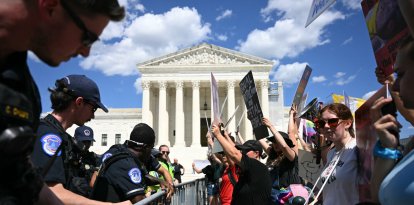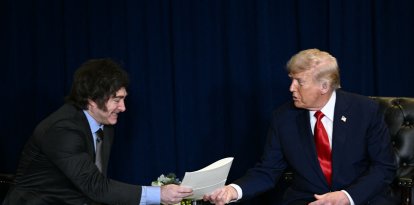The "hero in history": 20 years after the death of Ronald Reagan
The Republican who governed between 1981 and 1989 died in 2004 from Alzheimer's disease. His state funeral was the most attended since John F. Kennedy's in 1963.
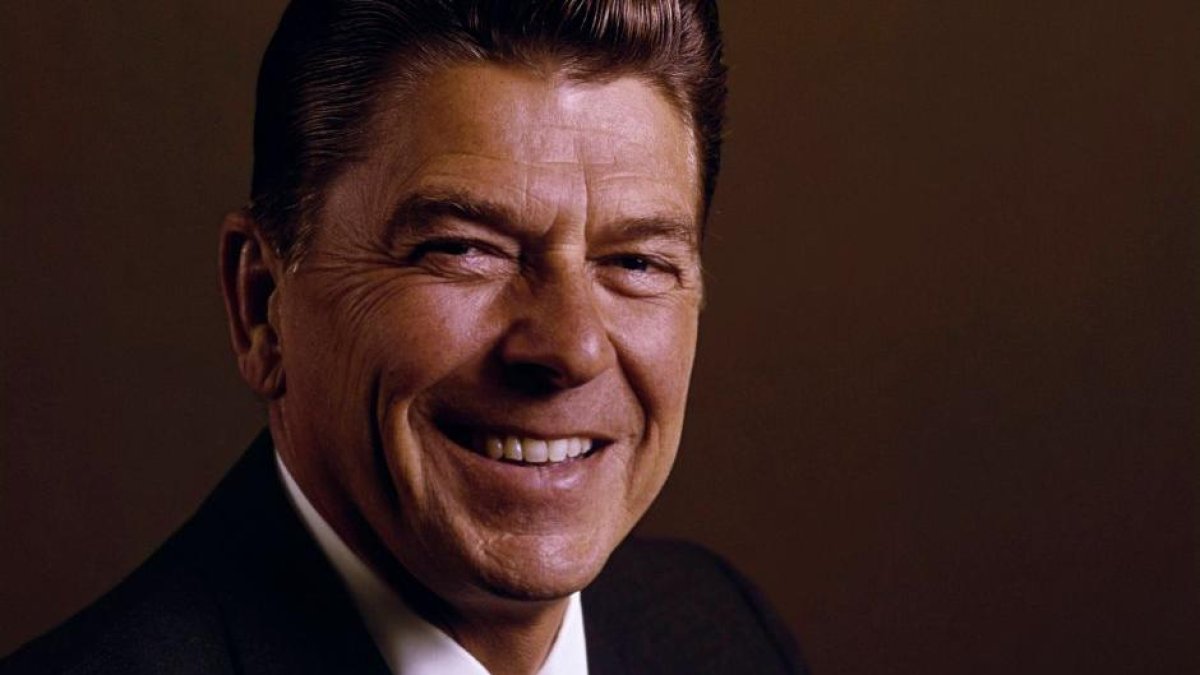
Cordon Press
Ronald Reagan, the president who changed the expansive trend of the government, won the Cold War, and sweetened millions of people with his insightful rhetoric, died on June 5, 2004, due to advanced Alzheimer's disease.
His daughter, Patti, revealed months later what his last seconds were like, a few last seconds worth telling.
“At the last moment, when his breathing told us this was it, he opened his eyes and looked straight at my mother (Nancy Reagan). Eyes that hadn't opened for days did, and they weren't chalky or vague. They were clear and blue and full of love. If a death can be lovely, his was," she remembered.
Reagan's importance was such that his funeral attracted a diverse range of local and world leaders. Even Mikhail Gorbachev, the Republican's rival during the decade that marked the end of the Soviet Union (USSR), traveled to Washington to say goodbye to whom he described as "an authentic person and a great person." The state funeral was the most attended since John F Kennedy's in 1963.
"The hero in history"
Sidney Hook was a philosopher who stood out for his writings against the totalitarianism of the 20th century, passing through fascism and then communism.
One of his most famous books was "The Hero in History," in which the author works hard to explain the concept of "the great man or the great woman in history."
"Is someone of whom we can say on the basis of the available evidence that if they had not lived when they did, or acted as they did, the history of their countries and of the world, to the extent that they are intertwined, would have been profoundly different. Their presence, in other words, must have made a substantial difference with respect to some event or movement deemed important by those who attribute historical greatness to them," Hook wrote.
Years later, Peter Robinson, a speechwriter during the Reagan administration, picked up the text and wondered if the 40th president of the United States fit that description.
After all, "The Gipper" restored pride to the nation with his sweetening rhetoric, valued the ideas of freedom and the market, revitalized the Republican Party, and ended the Cold War driven by a strategy that at that time seemed simple but was decisive: "We win, they lose." In his own words, "not bad, not bad at all." With this checklist of achievements, it wasn't that difficult for Robinson to answer Hook's question.
"Does Reagan fit the description? He does indeed. No one else would have done what he did. And what he did changed the world. But you needn't take my word for it. ‘If someone else had been in his place, I don't know if what happened would have happened,’ Mikhail Gorbachev said in a recent interview. There you have his principal adversary all but admitting it: Ronald Reagan was a ‘hero in history,´" he concluded.













